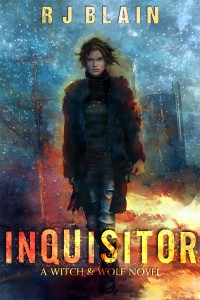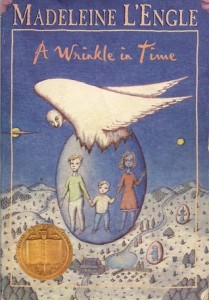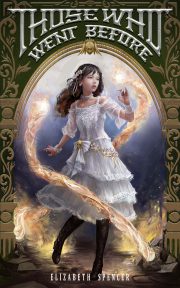RJ Blain: Why I joined SFWA – A Self-Published Author’s Perspective
 Once upon a time, in an elementary school far, far away, I read a banned book. My teacher was the one who gave it to me, hoping that introducing me to genre fiction would spark something in me. When I was in fourth grade, I was functionally illiterate. When I was forced to read, I had to mumble the words to myself, syllable by syllable. It was embarrassing, but that changed with the gift of one little novel. That book was Madeline L’Engle’s A Wrinkle in Time.
Once upon a time, in an elementary school far, far away, I read a banned book. My teacher was the one who gave it to me, hoping that introducing me to genre fiction would spark something in me. When I was in fourth grade, I was functionally illiterate. When I was forced to read, I had to mumble the words to myself, syllable by syllable. It was embarrassing, but that changed with the gift of one little novel. That book was Madeline L’Engle’s A Wrinkle in Time.
To this day, I still don’t understand why it was considered a banned novel. Fourth-grade me learned several valuable lessons: science fiction and fantasy was my first love, all of my favorite books had been penned by SFWA members, and that banned books were fun, interesting things.
To this day, I’m grateful that my school ignored book bans.
For many reasons, I ultimately became a self-publishing author. It was a huge and terrifying step; traditional publication offers so much to authors. Self-publishing is a one person job, and if you’re anything like me, it requires a lot of hired help. There was one painful price of self-publishing for me: I couldn’t become a member of the SFWA.
For all of my adult life, qualifying for SFWA membership was an out-of-reach dream.
When I found out that the SFWA was considering welcoming self-published authors, I was ecstatic. Would I be good enough? Would I meet the minimum requirements? SFWA membership has never been easy to obtain; I didn’t realize how hard it was until I spoke other self-published authors who also wrote science fiction and fantasy.
 Qualifying for SFWA under the new rules is difficult. I know a lot of self-publishing authors, and only a handful of them make the cut. Of those who do, some don’t want to pay the membership dues and others don’t see the point. Some see the polarized opinions of current and past members, and are hesitant to be a part of the group because of it.
Qualifying for SFWA under the new rules is difficult. I know a lot of self-publishing authors, and only a handful of them make the cut. Of those who do, some don’t want to pay the membership dues and others don’t see the point. Some see the polarized opinions of current and past members, and are hesitant to be a part of the group because of it.
When Inquisitor, the first novel of my Witch & Wolf series, qualified for membership, I knew what I would do. It was a simple decision for me to make. The SFWA was finally within my reach, and I meant to become a part of the organization’s story. I didn’t join to bring change or make a difference.
So why did I join the SFWA? While there are quantifiable advantages to being a member, including emergency medical funds, access to legal advice, and assistance with court cases, that wasn’t why I became a member. The right to vote in the organization (and make a difference!) is nice, but it isn’t why I became a member.
I became a member to learn, to grow, and to see my beloved genre mature and develop. In the recent months, there has been a plague of rumors, controversy, and conflict regarding the SFWA. There are those I know who joined to bring change, responding to the situations the SFWA faces. I don’t number among them.
I joined for the love of the genre, my passion for writing, and my respect for so many of the organization’s members.
I learned to read thanks to the hard work and creativity of those within the SFWA. Ultimately, that’s the proud, fifty-year tradition I want to be a part of—that I am very proud to be a part of.
 The organization is, and I think always will be, more than a checkmark on a successful SF/F writer’s list.
The organization is, and I think always will be, more than a checkmark on a successful SF/F writer’s list.
Since joining in March, I haven’t even begun to scratch the surface of what the SFWA has to offer. I’ve met so many intelligent people who care about science fiction and fantasy passionately. Right now, the membership consists mostly of traditionally published authors. That’s changing. Some of these people also self-publish. Some may not be interested in self-publishing. Others are preparing to take the plunge.
Within the SFWA is a diverse, vibrant, and passionate community tied together by one thing: the love of science fiction and fantasy.
Happy birthday, SFWA. Here’s to fifty more.
RJ Blain suffers from a Moleskine journal obsession, a pen fixation, and a terrible tendency to pun without warning. When she isn’t playing pretend, she likes to think she’s a cartographer and a sumi-e painter. In reality, she herds cats and a husband, and obeys the commands of Tsu Dhi, the great warrior fish. In her spare time, she daydreams about being a spy. Should that fail, her contingency plan involves tying her best of enemies to spinning wheels and quoting James Bond villains until she is satisfied.


